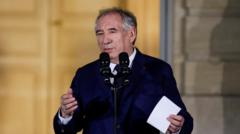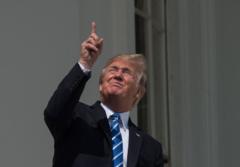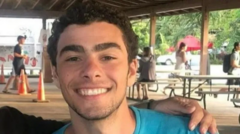Recent deaths raise urgent questions about working conditions, mental health support, and government accountability in Kenya's health sector.
**Tragic Trend: The Suicide Crisis Among Kenyan Medical Interns**

**Tragic Trend: The Suicide Crisis Among Kenyan Medical Interns**
The alarming rise in suicides among Kenyan trainee doctors highlights deep-seated issues within the healthcare system.
Despite being essential to the medical workforce, Kenyan interns are facing extreme distress, leading to multiple tragic suicides. Just last week, a village in Rift Valley mourned the loss of Francis Njuki, a 29-year-old intern whose struggle with mental health and an unpaid salary culminated in his suicide—marking him as the fifth medical worker to take their life within the last two months due to stress and bleak working conditions. The Kenya Medical Practitioners and Dentists Union (KMPDU) expressed grave concern, emphasizing that such occurrences are unprecedented within their records.
Njuki's family revealed that he experienced severe exhaustion and hallucinations stemming from sleep deprivation and frustration over not receiving a salary since starting his internship four months prior. This tragic loss reflects a broader crisis affecting medical interns who, having completed six or seven years of study, find themselves unpaid while working in often high-pressure environments. The government justified the salary delays as a matter of financial constraints, despite medical interns accounting for about 30% of the workforce in state hospitals.
The recent plight of medical interns has driven many to contemplate leaving the country or abandoning the profession altogether. Interns often find themselves working long hours under significant pressure, contributing substantially to healthcare services despite financial struggles exacerbating their mental health issues. The ongoing dispute over salaries has not been resolved, and the government is under pressure to address the inadequate compensation package: while the government has proposed lowering interns’ salaries, the KMPDU insists that it remains at $1,600 as per a 2017 agreement.
The deaths of interns like Dr. Timothy Riungu, who collapsed after an exhaustive shift, further highlight the toll that demanding work conditions have taken on young medics. This, along with the tragic loss of Dr. Desree Moraa Obwogi, illustrates a pressing health crisis. As medical professionals protest and push for reforms under the hashtag #PayMedicalInterns, health officials have yet to provide a comprehensive response.
The Mental Wellness Minister has promised initiatives to improve the support systems for healthcare workers, but experts warn that moral injury, guilt, and psychological trauma can compound the already challenging work environment. Interns expressed feeling unprepared to deal with the psychological impact of their responsibilities, with sentiments echoing the importance of a healthy workforce for a healthy nation.
Sadly, Kenya’s suicide rate, already alarmingly high, highlights an urgent public health issue: approximately 1,400 individuals die by suicide each year. The criminalization of suicide in Kenya is a further barrier to help-seeking behavior among those in distress. As pressure mounts on the government to provide changes, the question remains: how many more lives need to be lost before action is taken?
Njuki's family revealed that he experienced severe exhaustion and hallucinations stemming from sleep deprivation and frustration over not receiving a salary since starting his internship four months prior. This tragic loss reflects a broader crisis affecting medical interns who, having completed six or seven years of study, find themselves unpaid while working in often high-pressure environments. The government justified the salary delays as a matter of financial constraints, despite medical interns accounting for about 30% of the workforce in state hospitals.
The recent plight of medical interns has driven many to contemplate leaving the country or abandoning the profession altogether. Interns often find themselves working long hours under significant pressure, contributing substantially to healthcare services despite financial struggles exacerbating their mental health issues. The ongoing dispute over salaries has not been resolved, and the government is under pressure to address the inadequate compensation package: while the government has proposed lowering interns’ salaries, the KMPDU insists that it remains at $1,600 as per a 2017 agreement.
The deaths of interns like Dr. Timothy Riungu, who collapsed after an exhaustive shift, further highlight the toll that demanding work conditions have taken on young medics. This, along with the tragic loss of Dr. Desree Moraa Obwogi, illustrates a pressing health crisis. As medical professionals protest and push for reforms under the hashtag #PayMedicalInterns, health officials have yet to provide a comprehensive response.
The Mental Wellness Minister has promised initiatives to improve the support systems for healthcare workers, but experts warn that moral injury, guilt, and psychological trauma can compound the already challenging work environment. Interns expressed feeling unprepared to deal with the psychological impact of their responsibilities, with sentiments echoing the importance of a healthy workforce for a healthy nation.
Sadly, Kenya’s suicide rate, already alarmingly high, highlights an urgent public health issue: approximately 1,400 individuals die by suicide each year. The criminalization of suicide in Kenya is a further barrier to help-seeking behavior among those in distress. As pressure mounts on the government to provide changes, the question remains: how many more lives need to be lost before action is taken?





















